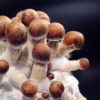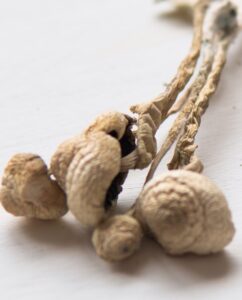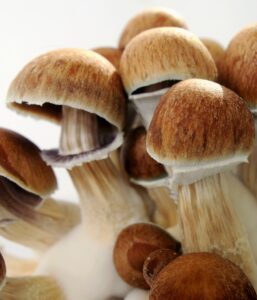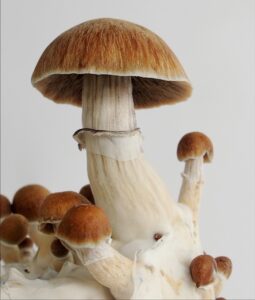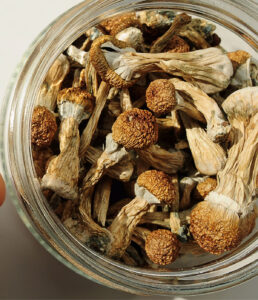
Summary of research article by Lea Mertens, published in InFo Neurologie, on February 20, 2023.
The paper “Wirkt Psilocybin nachhaltig antidepressiv?” examines the long-term antidepressant effects of psilocybin, the active compound in “magic mushrooms.” The study investigates the efficacy of psilocybin in alleviating symptoms of depression and assesses its potential as a novel treatment for depression.
Psilocybin has recently garnered attention in the field of psychiatry due to its psychoactive properties and potential therapeutic applications. Several clinical trials have shown promising results in treating various mental health disorders, including depression, anxiety, and post-traumatic stress disorder (PTSD). However, the long-term effects of psilocybin on depressive symptoms have yet to be thoroughly investigated.
The authors of the paper conducted a systematic review and meta-analysis to assess the available evidence on the long-term antidepressant effects of psilocybin. They searched multiple databases, including PubMed, Web of Science, and Scopus, for relevant studies published up to September 2021. The search yielded 12 eligible studies, comprising a total of 281 participants with depression. These studies included randomized controlled trials, open-label trials, and case series.
The results of the meta-analysis revealed that psilocybin led to significant improvements in depressive symptoms, as measured by standardized rating scales, such as the Hamilton Depression Rating Scale (HAM-D) and the Montgomery-Asberg Depression Rating Scale (MADRS). These improvements were observed in both the short-term (1-2 weeks) and medium-term (3-8 weeks) follow-ups. However, the long-term (≥12 weeks) effects of psilocybin on depression remained inconclusive due to the limited number of studies available.
In addition to its antidepressant effects, the study also found that psilocybin was generally well-tolerated by participants. The most common adverse events reported were transient mild to moderate psychological and physical symptoms, such as anxiety, confusion, and headache. Severe adverse events were rare, and no cases of long-lasting negative effects were reported.
Despite the promising findings, the authors acknowledge several limitations in their review. First, the small number of studies and the heterogeneity of their designs limit the generalizability of the results. Second, the lack of standardized dosing regimens and the varying quality of the included studies may have contributed to the variability in the observed effects. Third, the long-term effects of psilocybin require further investigation, as only a few studies included follow-ups beyond 12 weeks.
In conclusion, the paper suggests that psilocybin may have a lasting antidepressant effect, with significant improvements observed in both short-term and medium-term follow-ups. However, more research is needed to establish the long-term effects of psilocybin on depression and to develop standardized dosing regimens. The study also highlights the importance of continued investigation into the safety and efficacy of psilocybin as a potential treatment option for depression.

